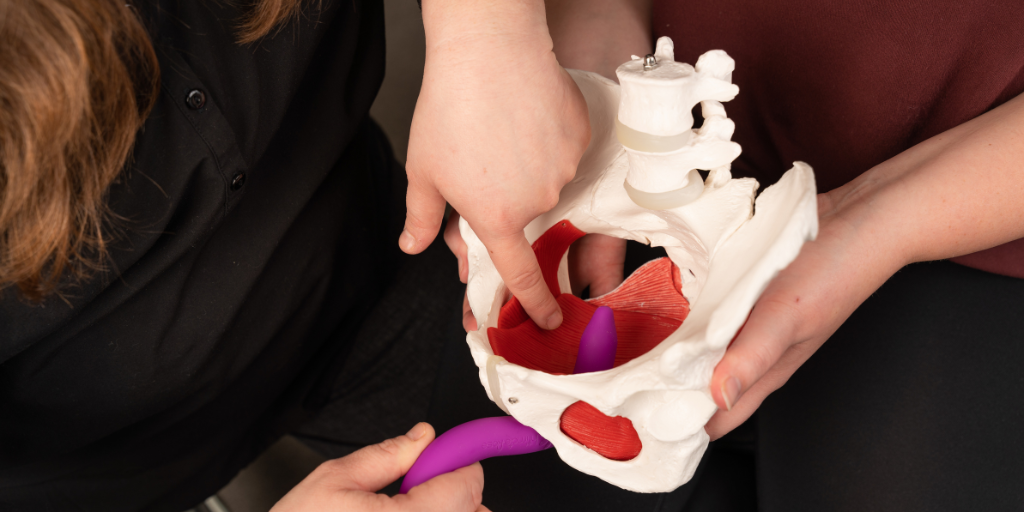Written by: Dr. Meredith Taylor, PT, DPT
What is Dyspareunia?
The simple definition of dyspareunia is “painful sexual intercourse”. It can occur before, during, or after penetration, and affect not only sex but also activities like using tampons or experiencing pelvic exams or with touch/thoughts associated with sexual arousal or intercourse.
How Can Pelvic Floor Physical Therapy Help?
Pelvic Floor Physical Therapists are experts in the muscles and fascia of the pelvic floor, which play a crucial role in sexual function. Through a personalized assessment, your therapist will determine the underlying cause of your pain and create a treatment plan tailored to your needs. This typically means an external and/or internal vaginal and/or rectal pelvic floor exam. If there is any hesitancy, we will gladly take the time to address any concerns/questions you may have.
The Treatment Journey:
Assessment: This involves discussing your symptoms, examining your pelvic floor muscles, and assessing other areas like your low back and hips that can contribute to pain.
Treatment: This may include manual therapy, specific exercises to strengthen or relax your pelvic floor muscles, breathing techniques, and education on various strategies and sexual positions to decrease pain.
Home Program: You’ll receive exercises and tools such as vaginal dilators to continue your progress between sessions.
Beyond Pelvic Floor Therapy:
In some cases, other healthcare professionals might be involved depending on the underlying cause of your pain. This could include doctors, psychologists, or other specialists.
Regardless of the underlying condition, the pelvic floor muscles and the nervous system’s response may be large contributing factors to pain with intercourse and our team can determine if the pelvic floor muscles or other parts of your body are contributing to the pain or discomfort with intercourse.
Common Underlying Conditions:
Several conditions can contribute to dyspareunia, including:
Pelvic floor injuries (childbirth, falls, etc.)
Vulvar skin conditions
Vaginal atrophy (due to menopause or hormonal changes)
Psychological factors like anxiety or depression
Pelvic infections
Endometriosis
Vulvodynia or Vaginismus
Remember: This list is not exhaustive. If you experience pain during sex, please come see Nesin Pelvic Health so we can help you decide if Pelvic Physical Therapy is a good fit for you and let us work with you to devise a personalized treatment plan to reach your goals of pain free intercourse.
Don’t let pain hold you back. Take control of your well-being and contact us today to schedule an evaluation at 256-513-8442

